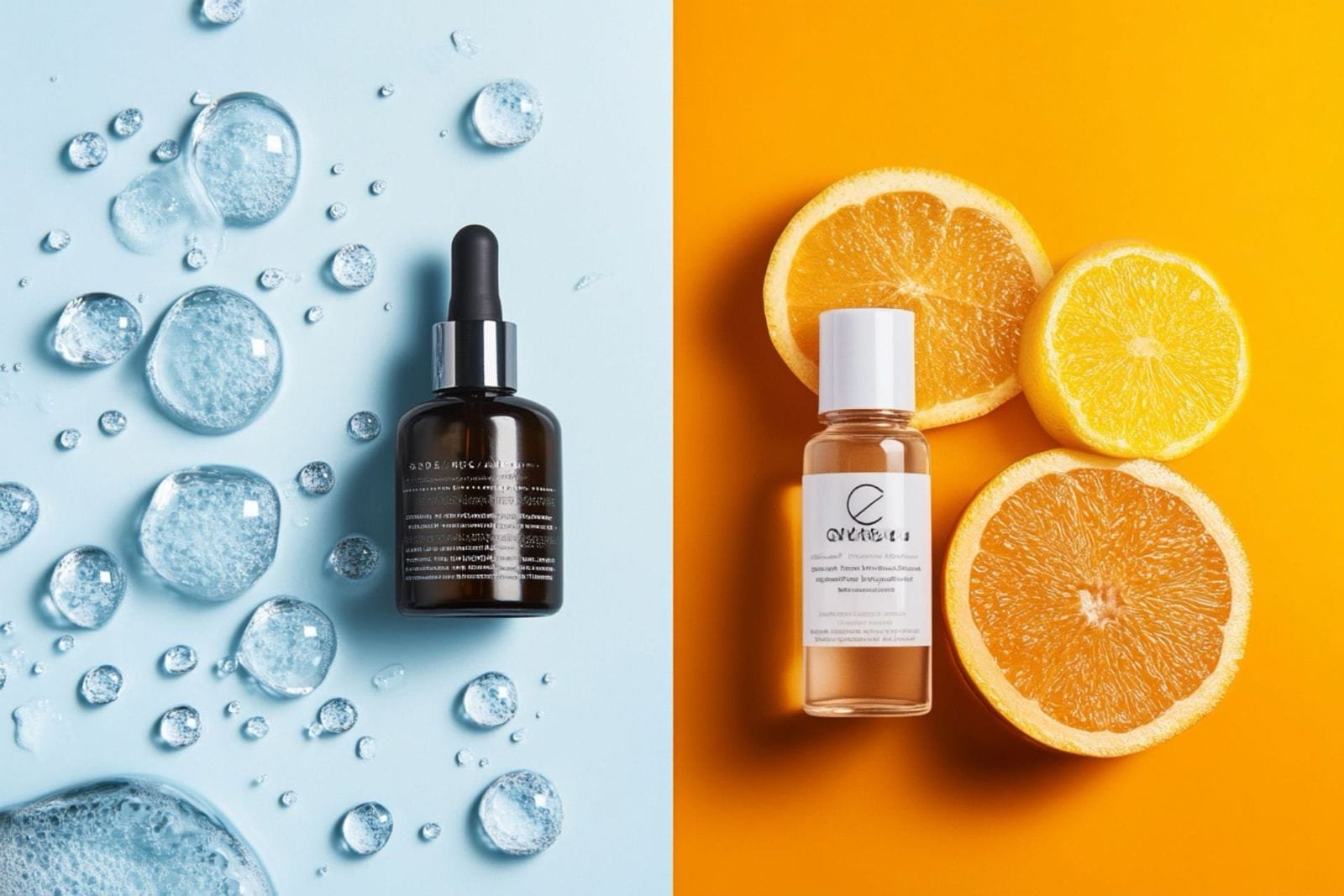Natural vs. Clinical Skincare: Which Approach Is Right for You?
When it comes to skincare, the choices can feel overwhelming. Do you trust nature’s remedies or turn to science-backed solutions? The debate between natural and clinical skincare continues to grow, leaving many wondering which approach is the best fit for their skin. This comprehensive guide explores the benefits, challenges, and key differences between natural and clinical skincare to help you make an informed decision.
What is Natural Skincare?
Natural skincare focuses on using plant-based, organic, or minimally processed ingredients. These ingredients are often gentler on the skin because they work in harmony with the skin’s natural barrier, reducing the risk of irritation and helping to maintain hydration. These products are typically free of synthetic chemicals, parabens, sulfates, and artificial fragrances.
Key Features of Natural Skincare:
- Derived from natural sources like plants and minerals.
- Often labeled organic or cruelty-free.
- Examples of ingredients: Aloe vera, rosehip oil, and shea butter.
Natural skincare appeals to those who prioritize eco-friendly and sustainable options, making it a popular choice for individuals with sensitive or mildly problematic skin.
What is Clinical Skincare?
Clinical skincare, on the other hand, relies on scientifically tested ingredients to deliver targeted results. These products undergo rigorous clinical trials and are often developed under the supervision of dermatologists to ensure both safety and efficacy. These products are often developed under dermatological supervision and designed to address specific skin concerns with proven efficacy.
Key Features of Clinical Skincare:
- Includes active ingredients like retinol, niacinamide, and peptides.
- Backed by clinical studies and dermatological research.
- Examples of treatments: Prescription creams, chemical peels, and professional-grade serums.
Clinical skincare is ideal for those seeking transformative results for concerns like acne, hyperpigmentation, or aging.
Benefits of Natural Skincare
- Gentle on the Skin:
- Free of harsh chemicals, natural products are less likely to irritate sensitive skin.
- Environmentally Friendly:
- Ingredients are often sustainably sourced, with eco-conscious packaging to reduce environmental impact.
- Rich in Antioxidants and Nutrients:
- Plant-based ingredients like green tea and honey provide vitamins and minerals that nourish the skin. Green tea acts as a powerful antioxidant, protecting the skin from environmental damage, while honey retains moisture and helps soothe irritation, making it an excellent choice for hydration.
- Fewer Synthetic Additives:
- Minimizes exposure to chemicals that may disrupt hormones or trigger allergic reactions.
Benefits of Clinical Skincare
- Scientifically Proven Results:
- Active ingredients like retinol and AHAs are backed by extensive research for their efficacy in treating skin concerns.
- Higher Potency:
- Delivers noticeable results faster by penetrating deeper layers of the skin.
- Customizable Treatments:
- Options tailored to individual skin types and conditions, often with professional guidance.
- Long-Lasting Impact:
- Provides sustained benefits for concerns like wrinkles, acne scars, and pigmentation.
Challenges of Natural Skincare
- Inconsistent Results:
- Lack of standardization in formulations can lead to varying effectiveness.
- Limited Active Ingredients:
- May not address severe skin issues like cystic acne or deep wrinkles.
- Potential for Allergies:
- Natural extracts, especially essential oils, can trigger reactions in some individuals.
- Marketing Greenwashing:
- Brands may misuse the term “natural” to appeal to eco-conscious consumers, leading to misleading claims.
Challenges of Clinical Skincare
- Higher Risk of Irritation:
- Potent actives like retinol and acids may cause redness, peeling, or sensitivity, especially for beginners. To mitigate these side effects, start with lower concentrations, use them on alternate nights, and always follow with a gentle moisturizer to maintain hydration.
- Costlier:
- Often more expensive due to the research, development, and concentration of active ingredients.
- Environmental Concerns:
- Synthetic production processes and non-recyclable packaging may have a larger ecological footprint.
- Potential Dependency:
- Consistent use is often required to maintain results.

Factors to Consider When Choosing Your Skincare Approach
1. Skin Type and Concerns:
- Natural Skincare: Best for sensitive or mildly problematic skin.
- Clinical Skincare: Ideal for targeted concerns like acne scars, deep wrinkles, or pigmentation.
2. Lifestyle and Values:
- Prefer sustainability? Opt for natural skincare.
- Need quick, proven results? Lean towards clinical formulations.
3. Budget:
- Natural skincare tends to be more affordable.
- Clinical skincare often comes with a higher price tag but delivers faster results.
4. Allergies or Sensitivities:
- Patch-test all products, especially those with strong actives or essential oils.
5. Long-Term Goals:
- Maintenance (natural) vs. transformation (clinical).
Can You Combine Natural and Clinical Skincare?
Combining the two approaches can offer the best of both worlds, leveraging the gentleness of natural products alongside the potency of clinical treatments. For example, someone with acne-prone skin might use a natural aloe vera cleanser to soothe inflammation while incorporating a clinical salicylic acid serum to target breakouts effectively.
Benefits of a Hybrid Approach:
- Use natural cleansers and moisturizers for daily care.
- Incorporate clinical serums or treatments for targeted results.
Example Routine:
- Morning: Cleanse with a natural product, apply a clinical vitamin C serum, and finish with SPF.
- Evening: Cleanse with a gentle natural cleanser, apply a clinical retinol, and moisturize with a shea butter-based cream.
Tips for Success:
- Introduce one product at a time to avoid overwhelming the skin.
- Consult with a dermatologist to create a balanced regimen.
Myths About Natural and Clinical Skincare
- “Natural skincare is always safer.”
- Not all natural products are hypoallergenic; some ingredients, like essential oils, can be irritating.
- “Clinical skincare is full of harmful chemicals.”
- Many clinical products are rigorously tested for safety and efficacy.
- “You can’t mix the two approaches.”
- Natural and clinical products can complement each other effectively when used correctly.
FAQs About Natural vs. Clinical Skincare
Is natural skincare better for sensitive skin?
Yes, but patch-test products for potential allergens like essential oils.
Does clinical skincare work faster than natural products?
Generally, yes, due to higher concentrations of active ingredients.
Are there any natural alternatives to clinical ingredients like retinol?
Bakuchiol is a plant-based retinol alternative with similar benefits.
How do I know which approach is best for me?
Assess your skin’s needs, budget, and values, and consider consulting a dermatologist.
Final words
Both natural and clinical skincare have unique strengths and challenges. Your choice depends on your skin type, concerns, and personal preferences. For some, a combination of both approaches may provide the best results.




